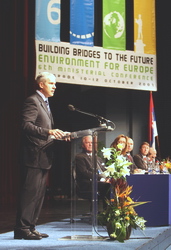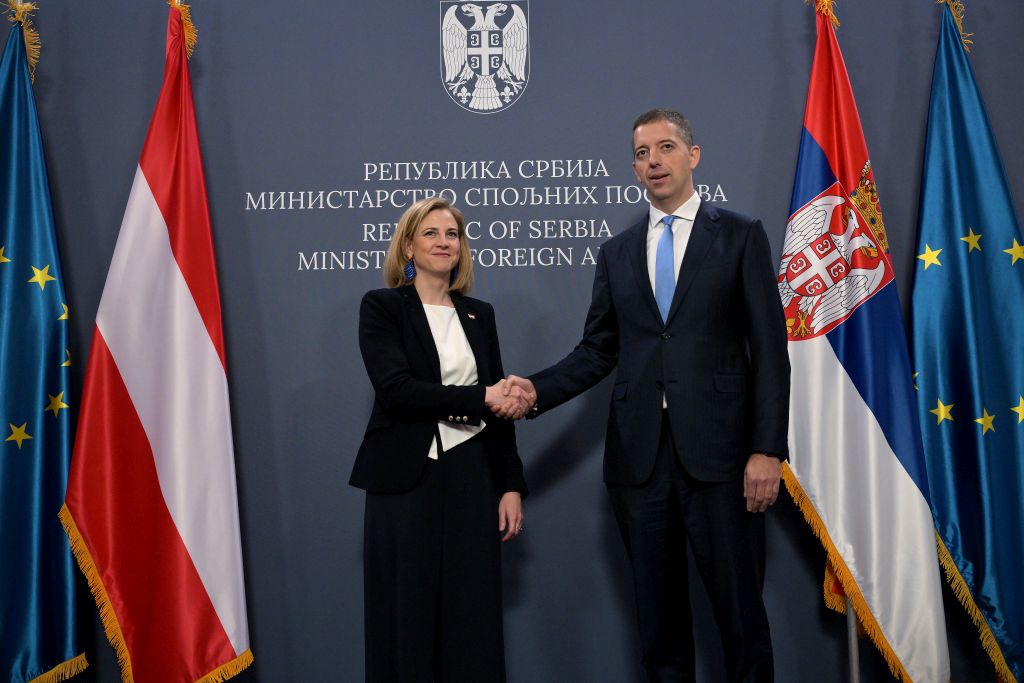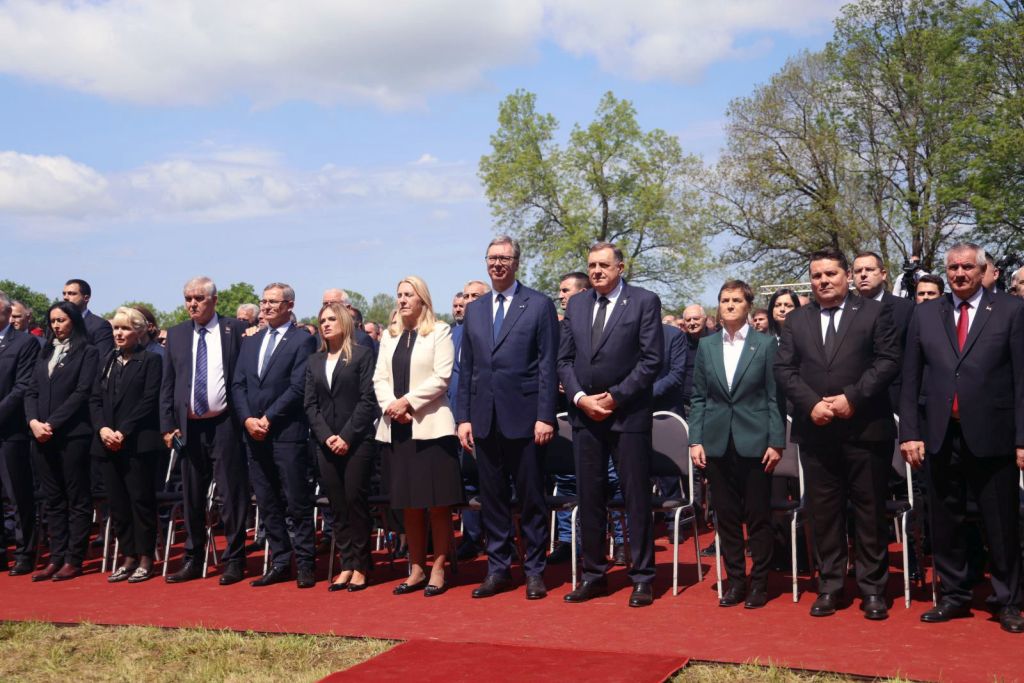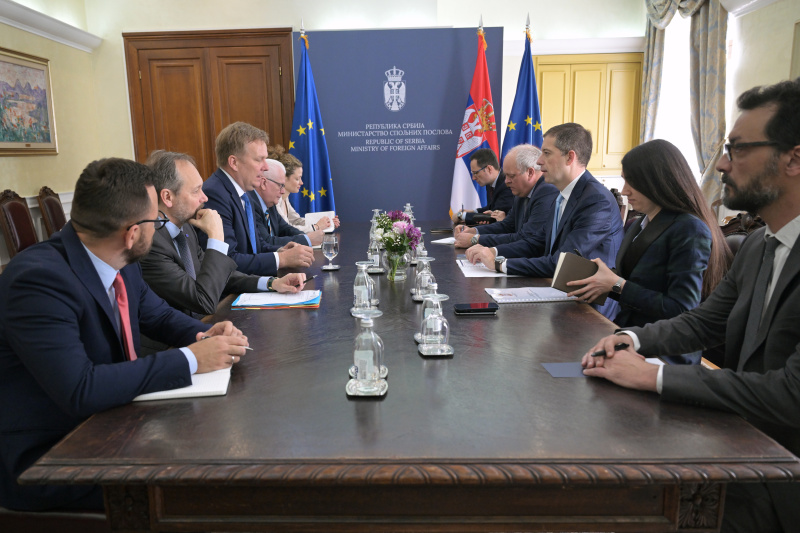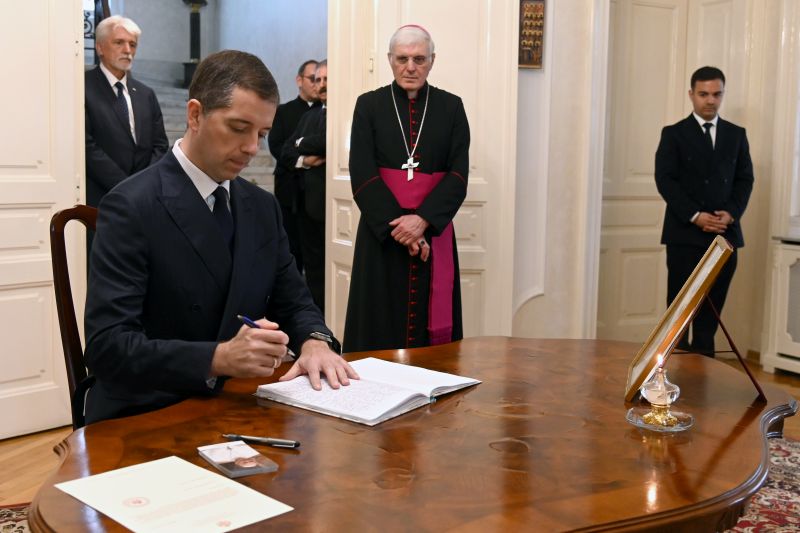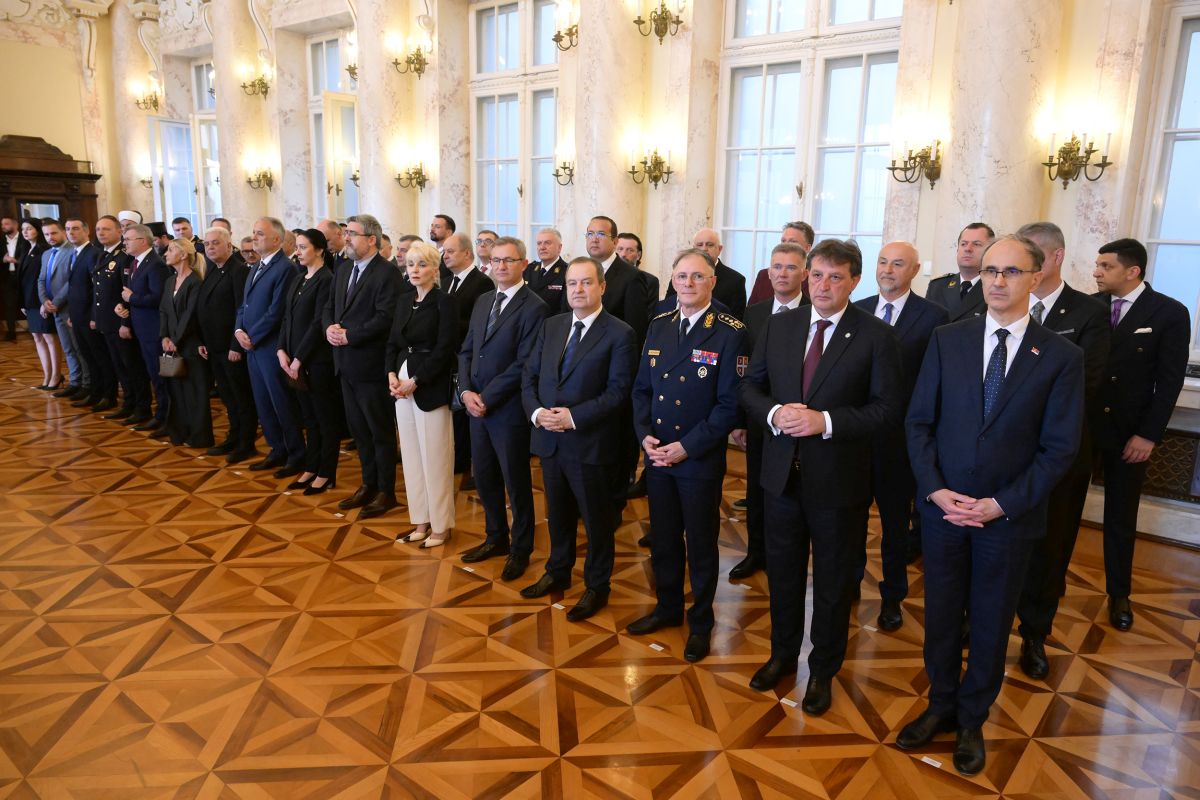Q:
A:
Sixth ministerial conference “Environment for Europe” begins
Belgrade,
10 October 2007
Serbian President Boris Tadic opened today in Belgrade the sixth ministerial conference “Environment for Europe” which gathers representatives of 56 countries and a number of international organisations.
Speaking at the opening of the conference in the Sava Centre, Tadic said that the issue of environmental protection should be treated as a question of great political importance in the development of democracy and protection of human rights which directly influences the stability of every country.
He said that this conference is one of the most important events in Serbia following the democratic changes which took place in 2000, and expressed satisfaction at the fact that the draft text of the sustainable development strategy of Serbia has been completed after two years of work.
Serbian Minister of Environmental Protection Sasa Dragin, who is chairing the conference, said that he is pleased that Belgrade was entrusted with the organisation of this important gathering.
He explained that environmental monitoring is the strongest tool for assessing environmental conditions and trends and therefore it is necessary to consider those data in creating national policies.
Dragin noted that the database system would significantly contribute to efficiency and effectiveness in implementation of the national environmental policy.
According to him, all countries should adhere to rules and recommendations for establishing their own environmental monitoring systems in order to upgrade the level of information comparativeness, which helps provide a more precise insight into the general environmental condition.
The Minister pointed out that government support is necessary to upgrade the awareness of citizens on the necessity of environmental protection, which will result in attaining the goals of sustainable development.
Also, it is necessary to invest effort in implementation of existing agreements in the field of environmental protection and establishment of new bilateral and multilateral agreements directed to improvement of the environmental situation in Europe.
Executive Director of the European Environmental Agency (EEA) Jacqueline McGlade presented a report “Europe's Environment — The Fourth Assessment”, and pointed out that improved implementation of existing policies and the setting of clear, realistic targets is a key recommendation of the report.
The region presented in the report includes Eastern Europe, Caucasus and Central Asia (EECCA), Southeast Europe (SEE), as well as Western and Central Europe (WCE).
We need to further strengthen the will to act on environmental issues across the pan-European region, McGlade stressed noting that this requires a better understanding of the problems we face, their nature and distribution across societies and generations.
Analysis, assessment, communication and education will help overcome this 'information gap' and will better equip those who need to act, the EEA Executive Director said.
Most of the environmental pressures in the region stem from economic activities such as agriculture, tourism, transport and energy, she said and added that current patterns of consumption and production also place an increasing demand on natural resources, putting our environment at further risk.
The target of halting biodiversity loss by 2010 will not be met without considerable additional efforts. More than 700 European species are under threat from extinction, including a number of iconic species such as the Iberian lynx and the snow leopard, as a result of habitat destruction, degradation and disturbance, she said.
Together with representatives of other participating countries, the Serbian Minister of Environmental Protection, Serbian Deputy Prime Minister Bozidar Djelic and Serbian Minister of Agriculture, Forestry and Water Management Slobodan Milosavljevic took part in a bicycle ride in front of the Sava Centre which preceded the opening of the conference.
The ministers, representatives of ministries responsible for environmental protection from 56 member countries of the United Nations Economic Commission for Europe (UNECE), Canada and the US, representatives of other UN member countries, international organisations, NGOs and the media are taking part in the three day conference.
Certain state delegations are being led by ministers of environmental protection and for the first time in the history of this event, ministers of education of UNECE countries will join the delegates of this conference
It is expected that at the conference Belgrade and Serbia will be established as the seat of the regional centre for monitoring climate change, which will give Serbia a leading role in South East Europe in ecology.
During the conference, participants will debate three different categories of documentation and two ministerial statements, which will be adopted during the course of the conference – these are the “Statement of the Ministers of Environmental Protection and Education about Sustainable Development” and the “Belgrade Statement on Biodiversity”.
The first ministerial conference “Environment for Europe” was held in 1991 in Czechoslovakia.
He said that this conference is one of the most important events in Serbia following the democratic changes which took place in 2000, and expressed satisfaction at the fact that the draft text of the sustainable development strategy of Serbia has been completed after two years of work.
Serbian Minister of Environmental Protection Sasa Dragin, who is chairing the conference, said that he is pleased that Belgrade was entrusted with the organisation of this important gathering.
He explained that environmental monitoring is the strongest tool for assessing environmental conditions and trends and therefore it is necessary to consider those data in creating national policies.
Dragin noted that the database system would significantly contribute to efficiency and effectiveness in implementation of the national environmental policy.
According to him, all countries should adhere to rules and recommendations for establishing their own environmental monitoring systems in order to upgrade the level of information comparativeness, which helps provide a more precise insight into the general environmental condition.
The Minister pointed out that government support is necessary to upgrade the awareness of citizens on the necessity of environmental protection, which will result in attaining the goals of sustainable development.
Also, it is necessary to invest effort in implementation of existing agreements in the field of environmental protection and establishment of new bilateral and multilateral agreements directed to improvement of the environmental situation in Europe.
Executive Director of the European Environmental Agency (EEA) Jacqueline McGlade presented a report “Europe's Environment — The Fourth Assessment”, and pointed out that improved implementation of existing policies and the setting of clear, realistic targets is a key recommendation of the report.
The region presented in the report includes Eastern Europe, Caucasus and Central Asia (EECCA), Southeast Europe (SEE), as well as Western and Central Europe (WCE).
We need to further strengthen the will to act on environmental issues across the pan-European region, McGlade stressed noting that this requires a better understanding of the problems we face, their nature and distribution across societies and generations.
Analysis, assessment, communication and education will help overcome this 'information gap' and will better equip those who need to act, the EEA Executive Director said.
Most of the environmental pressures in the region stem from economic activities such as agriculture, tourism, transport and energy, she said and added that current patterns of consumption and production also place an increasing demand on natural resources, putting our environment at further risk.
The target of halting biodiversity loss by 2010 will not be met without considerable additional efforts. More than 700 European species are under threat from extinction, including a number of iconic species such as the Iberian lynx and the snow leopard, as a result of habitat destruction, degradation and disturbance, she said.
Together with representatives of other participating countries, the Serbian Minister of Environmental Protection, Serbian Deputy Prime Minister Bozidar Djelic and Serbian Minister of Agriculture, Forestry and Water Management Slobodan Milosavljevic took part in a bicycle ride in front of the Sava Centre which preceded the opening of the conference.
The ministers, representatives of ministries responsible for environmental protection from 56 member countries of the United Nations Economic Commission for Europe (UNECE), Canada and the US, representatives of other UN member countries, international organisations, NGOs and the media are taking part in the three day conference.
Certain state delegations are being led by ministers of environmental protection and for the first time in the history of this event, ministers of education of UNECE countries will join the delegates of this conference
It is expected that at the conference Belgrade and Serbia will be established as the seat of the regional centre for monitoring climate change, which will give Serbia a leading role in South East Europe in ecology.
During the conference, participants will debate three different categories of documentation and two ministerial statements, which will be adopted during the course of the conference – these are the “Statement of the Ministers of Environmental Protection and Education about Sustainable Development” and the “Belgrade Statement on Biodiversity”.
The first ministerial conference “Environment for Europe” was held in 1991 in Czechoslovakia.







